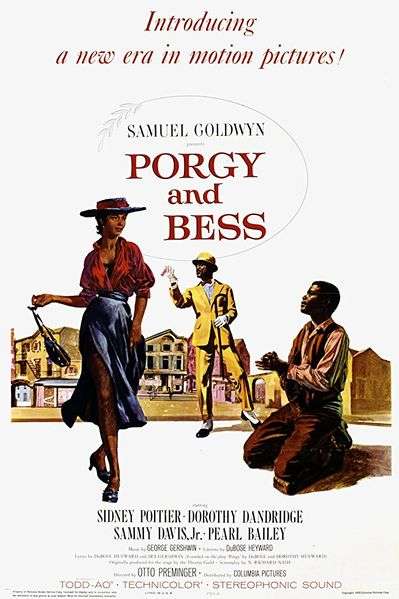Porgy and Bess (film)

Composer George Gershwin considered his masterpiece Porgy and Bess to be a "folk opera." Gershwin's score reflected traditional songs he encountered in visits to Charleston, S.C., and in Gullah revival meetings he attended on nearby James Island. Controversy has stalked the production history of the opera that Gershwin created with DuBose Heyward, who had written the original novel and play (with his wife Dorothy) and penned lyrics with Gershwin's brother Ira.
The lavish film version was produced in the late 1950s as the Civil Rights Movement gained momentum and a number of African-American actors turned down roles they considered demeaning. Harry Belafonte, who refused the part of Porgy, explained, "in this period of our social development, I doubt that it is healthy to expose certain images of the Negro. In a period of calm, perhaps this picture could be viewed historically." Dissension also resulted when producer Samuel Goldwyn dismissed Rouben Mamoulian, who had directed the play and musical on Broadway, and replaced him with Otto Preminger.
Produced in Todd-AO, a state-of-the-art widescreen and stereophonic sound recording process, with an all-star cast that included Sidney Poitier, Dorothy Dandridge, Sammy Davis, Jr., Pearl Bailey and Diahann Carroll, Porgy and Bess, now considered an "overlooked American masterpiece" by one contemporary scholar, rarely has been screened in the ensuing years.
Porgy and Bess was added to the National Film Registry in 2011.
- Executive Meddling: As mentioned above, producer Samuel Goldwyn dismissed Rouben Mamoulian, who had directed the play and musical on Broadway, and replaced him with Otto Preminger.
This page needs more trope entries. You can help this wiki by adding more entries or expanding current ones.